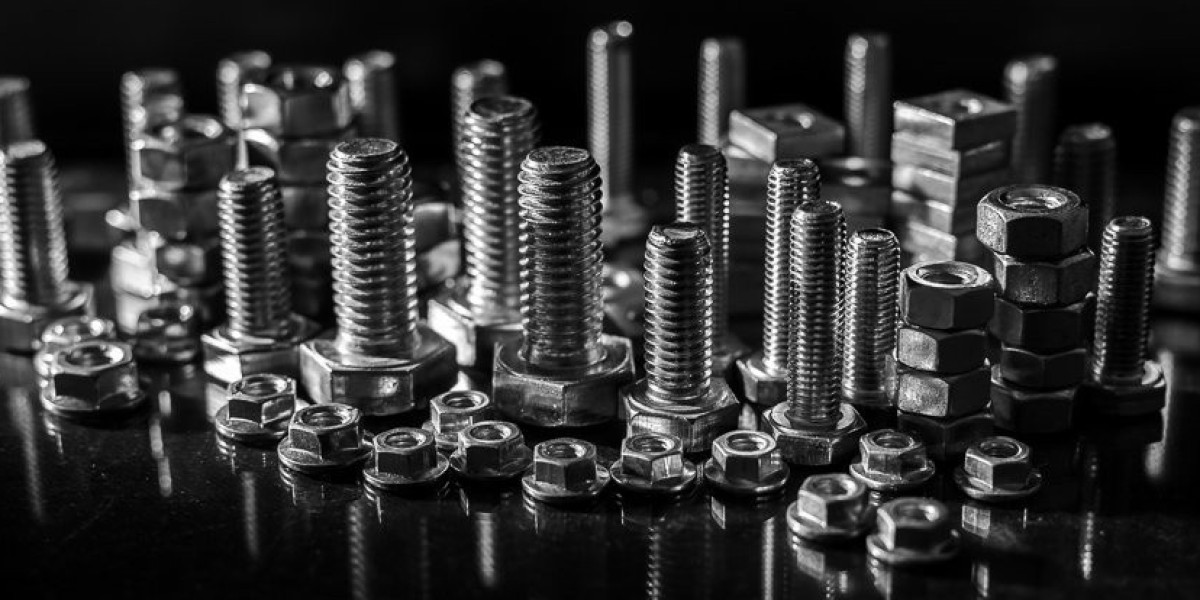Fasteners may appear small, but they hold together some of the most complex and heavy-duty structures in the world. Choosing the right fastener material is crucial, especially in industries like aerospace, defense, and automotive, where performance and safety cannot be compromised. Among the many available materials, Aluminum 2014 Fasteners have gained a strong reputation for their combination of high strength, excellent machinability, and lightweight design.
This blog provides an in-depth look at Aluminum 2014 Fasteners, including their features, advantages, manufacturing standards, and key applications.
Understanding Aluminum 2014 Alloy
Aluminum 2014 is a copper-based alloy and part of the 2xxx series. It is known for being one of the strongest aluminum alloys, particularly when subjected to heat treatment. The high copper content enhances its mechanical strength, making it suitable for fasteners that require resistance to stress and wear.
Because of its excellent mechanical properties, Aluminum 2014 is often called an “aircraft alloy,” widely used in aerospace components and high-performance engineering applications.
Characteristics of Aluminum 2014 Fasteners
When converted into bolts, nuts, screws, and washers, Aluminum 2014 retains its impressive properties. Here are the defining characteristics that make these fasteners a preferred choice:
Superior Strength – Offers tensile and yield strength comparable to many steel alloys but at a lighter weight.
Heat Treatable – Responds well to heat treatment processes that further enhance strength and durability.
Excellent Machinability – Allows production of complex and precision fasteners with tight tolerances.
Fatigue Resistance – Performs reliably under repeated loading, a must in aerospace and automotive systems.
Good Workability – Can be easily fabricated into different shapes and sizes for customized fastening needs.
Lightweight – Helps reduce the total weight of assemblies, which is critical for fuel efficiency in aerospace and automotive designs.
Mechanical Properties of Aluminum 2014 Fasteners
Tensile Strength: 400 – 450 MPa
Yield Strength: 280 – 320 MPa
Elongation: 10 – 15%
Hardness: 120 – 150 HB
Density: 2.8 g/cm³
These properties ensure Aluminum 2014 fasteners perform well under high load and stress.
Types of Aluminum 2014 Fasteners
Depending on the fastening requirement, Aluminum 2014 can be crafted into a variety of components:
Aluminum 2014 Bolts – Used in structural assemblies where strong and durable joints are needed.
Aluminum 2014 Nuts – Work with bolts to create secure connections in high-strength environments.
Aluminum 2014 Screws – Provide reliable fastening in machinery and equipment.
Aluminum 2014 Washers – Help distribute loads evenly and protect surfaces.
Aluminum 2014 Studs – Designed for heavy-duty fastening solutions in automotive and defense sectors.
Benefits of Aluminum 2014 Fasteners
Strength-to-Weight Efficiency – They provide high strength at a fraction of the weight of steel, making them ideal for aircraft and automotive use.
Cost-Effective Performance – Compared to titanium and specialty alloys, Aluminum 2014 offers affordability without compromising quality.
Adaptability – Can be anodized, plated, or coated for added corrosion resistance and aesthetic appeal.
Reliable in High-Stress Environments – Their fatigue resistance ensures long-lasting performance under dynamic loads.
Ease of Manufacturing – Excellent machinability allows fast production cycles and consistent quality.
Applications of Aluminum 2014 Fasteners
The applications of Aluminum 2014 fasteners extend across industries where safety, efficiency, and performance are critical.
1. Aerospace Engineering
Used in aircraft wings, fuselage, landing gear, and engine components.
Reduce overall aircraft weight while maintaining strength.
2. Automotive Industry
Found in racing cars, performance vehicles, and structural components.
Improve fuel efficiency by reducing vehicle weight.
3. Marine Applications
Utilized in shipbuilding, boat construction, and marine hardware.
Require additional protective coatings against saltwater corrosion.
4. Defense and Military
Employed in military vehicles, aircraft, and weapon systems.
Offer a balance of toughness and lightweight design.
5. Construction and Infrastructure
Used in bridges, high-rise buildings, and structural assemblies.
Provide secure fastening while reducing dead load.
6. Industrial Equipment
Support heavy-duty machinery where reliable fasteners are essential.
Standards and Specifications
Aluminum 2014 fasteners are manufactured in compliance with international standards to ensure safety and quality:
ASTM B211 / B221 – For aluminum alloy bars, rods, and profiles.
ASTM F467 / F468 – Nonferrous fastener specifications.
ISO, DIN, JIS, BS – Global fastener dimension and quality standards.
Surface Treatments and Finishes
To extend service life and improve performance, Aluminum 2014 fasteners can undergo various finishing processes:
Anodizing – Enhances corrosion resistance and surface hardness.
Zinc Coating – Provides extra protection against oxidation.
Powder Coating – Offers durability with aesthetic benefits.
Passivation – Creates a protective oxide layer for long-term stability.
Why Industries Choose Aluminum 2014 Fasteners
Industries prefer Aluminum 2014 fasteners because they provide an unmatched combination of strength, lightweight performance, and machinability. Unlike standard steel fasteners, they help reduce weight in critical assemblies without sacrificing load-bearing capacity. This makes them invaluable in industries where every gram matters, like aerospace and high-speed automotive manufacturing.
Maintenance Guidelines
To maximize the service life of Aluminum 2014 fasteners, proper maintenance is essential:
Store them in dry environments to prevent oxidation.
Use coatings when exposed to highly corrosive conditions.
Inspect regularly for wear and replace when necessary.
Ensure compatibility with other metals to avoid galvanic corrosion.
The Growing Demand for Aluminum 2014 Fasteners
As industries worldwide move toward lightweight materials and energy efficiency, the demand for Aluminum 2014 fasteners continues to increase. Advancements in coating technologies and alloy processing will further improve their corrosion resistance and broaden their applications.
With a strong focus on aerospace, defense, and green automotive manufacturing, Aluminum 2014 fasteners are poised to play an even bigger role in future engineering.
Conclusion
Aluminum 2014 fasteners represent a perfect balance between strength, weight reduction, and machinability. Their ability to withstand heavy loads while reducing overall assembly weight makes them indispensable in aerospace, automotive, marine, and defense sectors. From bolts and nuts to screws and washers, these fasteners provide unmatched reliability for critical applications.
Choosing Aluminum 2014 fasteners ensures durability, efficiency, and performance—qualities that modern industries cannot compromise.













